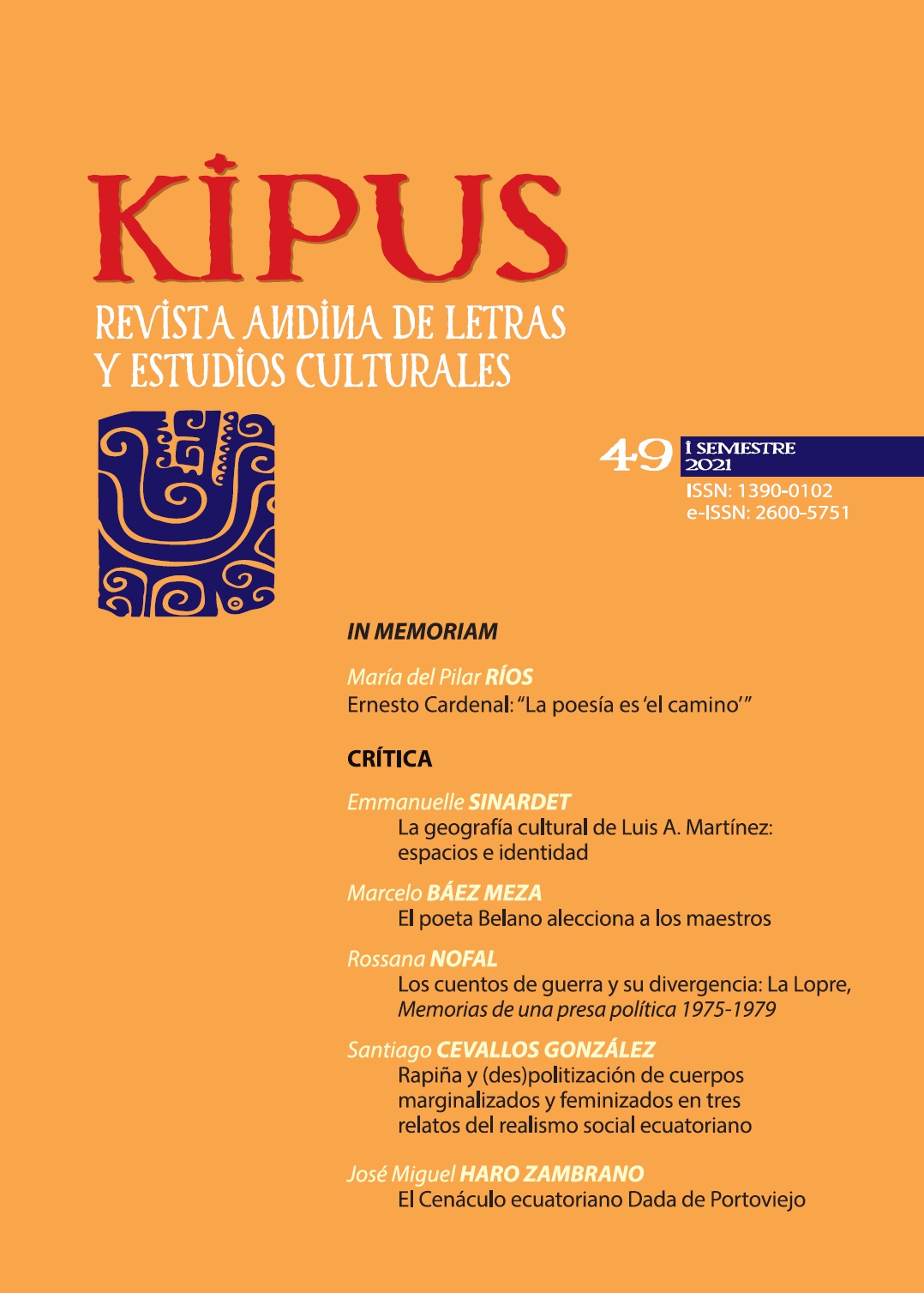War stories and Their Divergence: The Lopre, Memoirs of a Political Prisoner 1975-1979
DOI:
https://doi.org/10.32719/13900102.2021.49.4Keywords:
Argentina, gender, literary, sexual, militancy, violence, politics, classAbstract
“What happens when one has to intervene in a text that was written by a literate person al-though their surname does not necessarily correspond to the Homeland’s makers, but rather to someone who places themselves in a particular place to narrate a recent history?”. María Moreno’s question in the epilogue of Memorias de una presa política 1975-1979 interpellatesthe constitution of the corpus of testimonial narratives in its emblematic axes: patriarchal fa-milism and the narrative of heroic militancy. The recovery of Graciela La Lopre’s manuscriptwith her accounts of captivity in Villa Devoto prison, the editing processes, the attempts to siege her legacy with the intervention of Cristina Pinal, Mary Dal Dosso, Graciela Dillet, Cristina Raschia and Silvia Gabarain, and the organization of the narrative in Cristina Feijóo’sprologue dismantle the myths of the literate testimony. Women authors by proxy, pseudonymand common nickname frame the question regarding the possession of the original and a new autobiographical pact in which the characters of the story validate the facts that literaturenarrates. The romantic narrative of the exchange of love letters with a man and the termina-tion of life by suicide with barbiturates in an apartment in Paris alter heroic protocols and con-figure their divergent fold. Beyond the binary model of the construction of the senses amongthe wrecked and the spared, I am interested in exploring how the literate testimony of La Lopre’s captivity, in a double register of literary and sexual genre, registers political violencefrom a class perspective. It is the story told by the unwitting witness of cruelty. It does not recognize a militant mandate that must be fulfilled. It does not survive to tell.
Downloads
References
Jelin, E. 2017. La lucha por el pasado. Cómo construimos la memoria social. Buenos Aires: Siglo XXI.
Kaufman, S. 2018. “Perspectivas subjetivas sobre el testimonio. Experiencias lí-mites, lenguajes y formas de representación”. En Avatares del testimonio en el Cono Sur. Cartografías. Voces. Experiencias, coordinado por T. Basile y M. Chiani. La Plata: EDULP (en prensa).
La Lopre, Graciela. 2006. Memorias de una presa política 1975-1979. Buenos Ai-res: Norma.
Nofal, R. 2009. “Literatura y testimonio”. En La investigación literaria. Proble-mas iniciales de una práctica, dirigido por M. Dalmaroni. Santa Fe: Secretaría de Extensión, Universidad Nacional del Litoral.
–––. 2012. “Cuando el testimonio cuenta una guerra”. El hilo de la fábula, 12: 91-101.
–––. 2015. “Configuraciones metafóricas en la narrativa argentina sobre memorias de dictadura”. Kamchatka, 6: 835-51.
Rama, A. 1984. La ciudad letrada. Hanover: Ediciones del Norte
Downloads
Published
How to Cite
Issue
Section
License

This work is licensed under a Creative Commons Attribution-NonCommercial-ShareAlike 4.0 International License.







.png)
